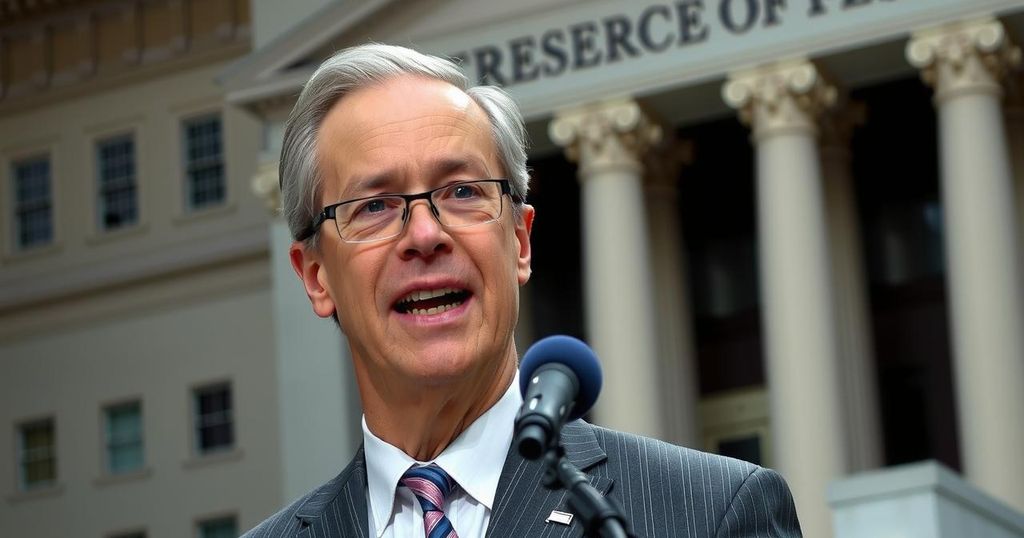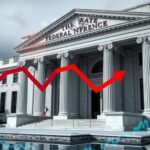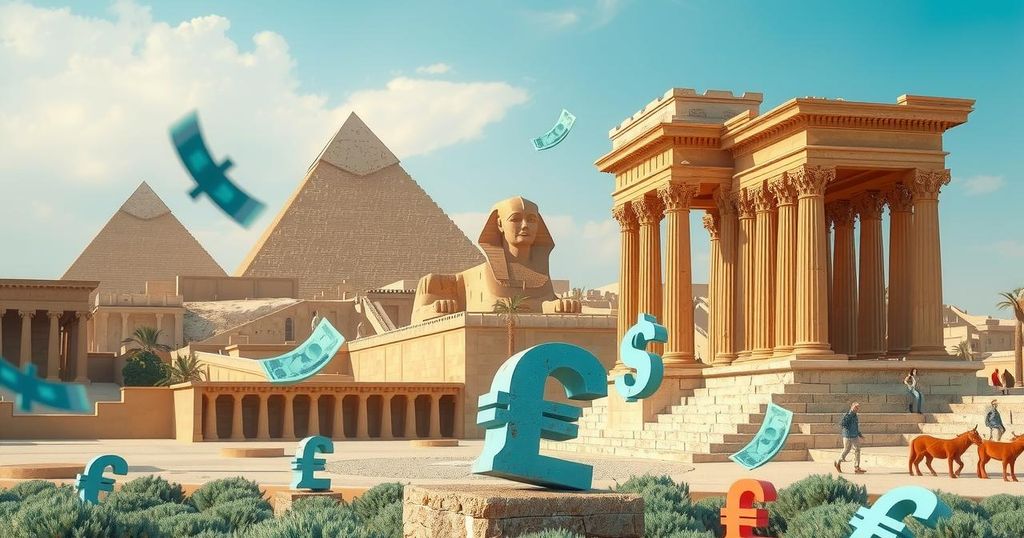Jerome Powell Confirms Federal Reserve Cannot Hold Bitcoin As Reserve Asset
Jerome Powell, Chair of the Federal Reserve, stated that the Fed cannot own Bitcoin, dismissing rumors of its inclusion in reserves. This announcement coincided with market reactions, causing Bitcoin’s price to drop by 5.7%. Despite Powell’s stance, interest in Bitcoin as a reserve asset persists, with lawmakers like Cynthia Lummis pushing for legislative change to allow Bitcoin purchases by the Treasury.
Jerome Powell, the Chair of the Federal Reserve, recently rejected the notion that the Fed could include Bitcoin in its reserves during a two-day meeting. Powell emphasized that the current regulations under the Federal Reserve Act prohibit the institution from holding Bitcoin, and he indicated that there are no immediate plans to amend these laws. The announcement came amid discussions of potential rate cuts and uncertainties in monetary policy, which have heightened interest in Bitcoin as a potential reserve asset.
The speculation regarding Bitcoin’s addition to the Federal Reserve’s reserves gained traction following President Donald Trump’s administration, which appointed several crypto-friendly officials and expressed a commitment to fostering a positive environment for cryptocurrencies. Despite this, Powell maintained that the US banking system is not authorized to own Bitcoin, stressing that legislative changes would be a Congressional matter.
Consequently, Powell’s declarations had a notable impact on the cryptocurrency market, with Bitcoin experiencing a significant price drop of 5.7%, closing at approximately $100,300. Other cryptocurrencies also followed suit, with Ethereum, Solana, and Binance Coin witnessing decreases in value. Moreover, key stock indices such as the Nasdaq and S&P 500 reflected a downturn, succumbing to the broader market’s reaction to Powell’s statements.
This situation remains dynamic, as proponents of Bitcoin, including Wyoming Senator Cynthia Lummis, continue to advocate for its consideration as a reserve asset. Lummis has even proposed legislation directing the US Treasury to acquire Bitcoin regularly, aiming for a substantial reserve accumulation over the next five years. The ongoing discussions indicate that interest in Bitcoin as an alternative reserve asset persists, regardless of the Fed’s current stance.
The recent dialogue regarding Bitcoin’s role in the US monetary system arises amidst fluctuating interest rates and evolving monetary policies. The Federal Reserve, under the leadership of Jerome Powell, has historically refrained from holding Bitcoin due to legislative constraints outlined in the Federal Reserve Act. This framework clearly delineates what assets the banking institution is permitted to own. Nonetheless, Bitcoin’s growing popularity as an investment alternative has led to calls from various policymakers for its integration into traditional finance, notably as a reserve asset. The renewed interest can be traced back to political dynamics, particularly during election cycles, where candidates like Donald Trump have leveraged cryptocurrency themes to garner voter support.
In conclusion, Jerome Powell’s recent statements have clarified the Federal Reserve’s position on Bitcoin, reiterating the legal restrictions that prevent the Fed from holding digital assets. Despite the disappointment this may have caused among Bitcoin advocates, the proposal for Bitcoin as a reserve asset is gaining traction among some policymakers. The immediate market reaction was a downturn in Bitcoin’s price and related digital currencies, alongside a negative impact on traditional stock indices. As the landscape continues to evolve, the future of Bitcoin’s status as a potential reserve asset remains to be seen, especially with ongoing advocacy from influential figures in Congress.
Original Source: bitcoinist.com








Post Comment